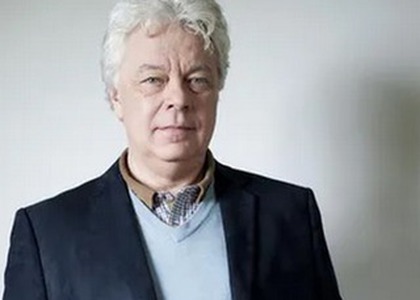> Interviews

Interview with conductor Christopher Warren-Green
Christopher Warren-Greenreturns to conduct the Radio Chamber Orchestraon Wednesday, November 20th, 2024. The programme brings together the overture to "The Italian Girl in Algiers" b yGioachino Rossini, Wolfgang Amadeus Mozart's Clarinet and Orchestra Concerto in A major, KV 622 and Ludwig van Beethoven's Symphony no. 4 in B flat major, op.60. The soloist of the evening is the young clarinettist RaduGreluș, member of the Radio Chamber Orchestra.
Would you say that there is a touch of lightness and brightness in the programme you are conducting this Wednesday? Perhaps especially in the first piece, "The Italian Girl in Algiers" by Gioachino Rossini, and in the work which concludes the programme - Ludwig van Beethoven's Symphony no. 4?
The simple answer to this question would be: Beethoven's Symphony no. 4 lies between two giants - the "Eroica" Symphony and Symphony no. 5. And even though it is written in a somewhat "dark" key, Beethoven was in love with Countess von Brunsvik at the time of its composition. If we keep this detail in mind when shaping our perspective on the musical programme, especially as far as Beethoven's symphony is concerned, we discover that we are faced with a much lighter, more joyful situation. Beethoven is, of course, very powerful and vigorous, contrasting greatly with Mozart, who included everything in his work except for brutality - that, he left to Beethoven. But in Symphony no. 4, there is no real brutality; instead, there is only pure love of life, this joie de vivre. Throughout the entire work, one does feel that Beethoven was in love - there are tender moments, flirtation, dancing, and sheer joy.
What is your perspective on Mozart's Clarinet and Orchestra Concerto in A Major, also known as the composer's "Swan Song"?
It was written, of course, in the same year as the Requiem. There is something truly incredible about this concerto - people I know, who do not necessarily listen to classical music in general, often hear the slow part of this concerto on the radio and exclaim, "I know this piece! What is it?" But, in fact, they do not know the work. The same goes for the "Little Serenade". It seems that Mozart manages to compose something that, even if you have never heard it before, leaves you with the feeling that it is familiar. Amazing! The beauty of this concerto is, indeed, impressive, especially considering that it was composed in his final year of life. I think he really foresaw his death, as it often happens to many people. It is something extraordinary!
How does it feel to return to the podium of the Radio Chamber Orchestra?
I have returned here because I love the musicians. They are great! I love Romanians and I appreciate the performers in this orchestra in particular, because they are so wonderfully conscientious; they are very good musicians. They just need the right circumstances to shine.
How do you view your collaboration with the young clarinettist Radu Greluș?
As mentioned before, the performers in the orchestra are of high caliber, and I wanted to offer them the opportunity to shine, just as I would with the members of my orchestras in America or London. For the programme of this concert, I decided that we should put one of the soloists from the orchestra in the spotlight, because there are,indeed, caliber artists within the ensemble. The programme was, in a way, built around Mozart's Clarinet and Orchestra Concerto. When you have good performers, you can bring them to the forefront. It is not always easy for the musicians in the orchestra, but he will do wonderfully - I am certain of that.
Translated by Mara Scoroșanu,
University of Bucharest, Faculty of Foreign Languages and Literatures, MTTLC, year I
Corrected by Silvia Petrescu














